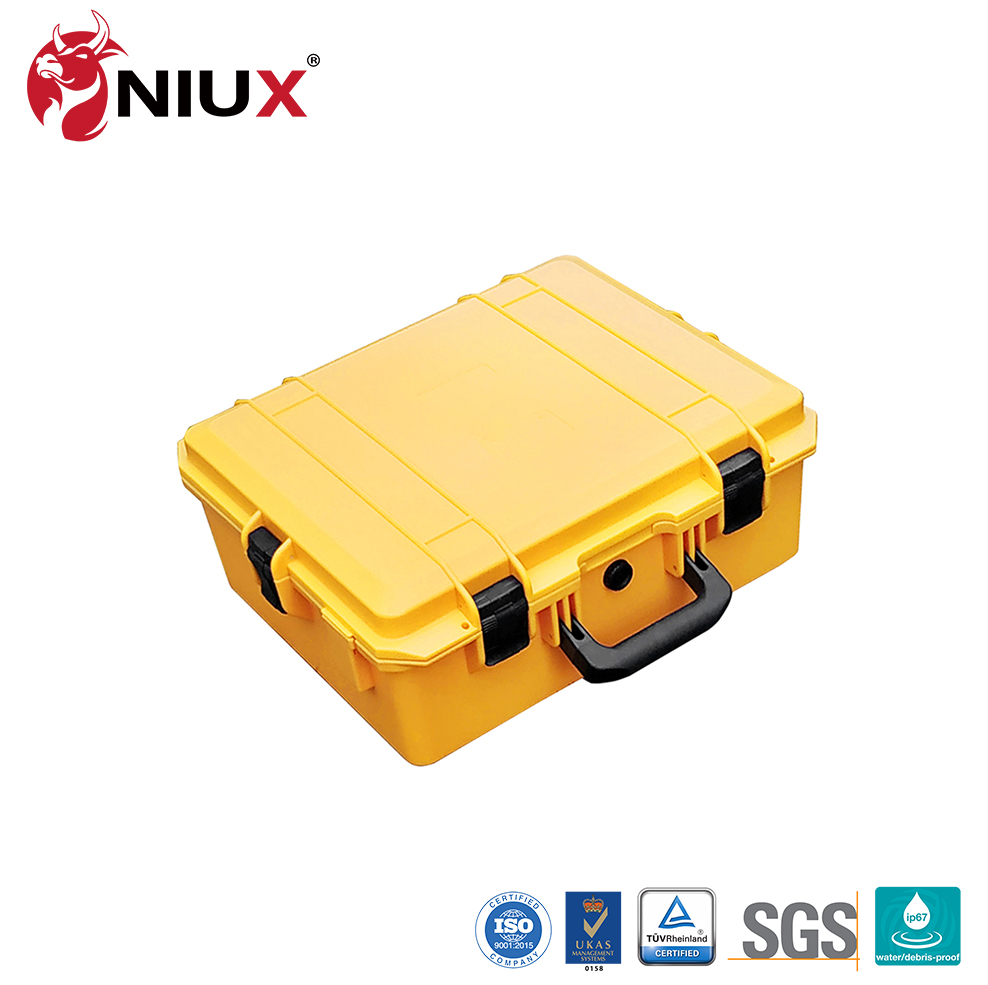Email: sales@niuxcases.com Tel: +86-18022986596
- All
- Product Name
- Product Keyword
- Product Model
- Product Summary
- Product Description
- Multi Field Search
- Product private attributes
Views: 10 Author: Site Editor Publish Time: 2024-04-16 Origin: Site
In the world of travel, having durable luggage that can withstand the rigors of transportation is crucial. With the advent of advanced materials, two popular options for HARD CASES have emerged: ABS (Acrylonitrile Butadiene Styrene) and polypropylene. Understanding the differences between these materials can help you make an informed decision when selecting the perfect waterproof PLASTIC CASE for your travels.
Both ABS and PP work well with CNC machining, injection molding, and industrial-grade 3D printing (additive manufacturing). Here's a look at the benefits and applications of these two workhorse materials, and, at the bottom, a table that compares typical material properties of these two plastics among the three manufacturing methods of machining, molding, and 3D printing (specifically, stereolithography).
ABS is a thermoplastic polymer known for its toughness and impact resistance. It is widely used in various applications, including luggage manufacturing. Polypropylene, on the other hand, is another thermoplastic polymer known for its lightweight and flexibility. Both materials offer unique advantages when used in luggage production.
When comparing ABS vs polypropylene luggage, strength and durability are essential factors to consider.
ABS is one of the most affordable thermoplastics and has excellent mechanical properties such as durability and rigidity, and has a high heat-deflection capability. Easy and fast to machine and fabricate, ABS has excellent "machinability."
PP is also an affordable thermoplastic, in fact it is generally less expensive than ABS. It is durable, tough, flexible, low in weight compared to other plastics, and is resistant to moisture absorption. The density of PP is less than 1 g/ml, so it floats on water. PP's properties are similar to polyethylene, but the material is slightly harder and more heat resistant, in fact it has better heat resistance than ABS.For more information, please refer to the article:COMPARISON BETWEEN ABS AND PP

● A low-cost plastic.
● Mostly unaffected by temperature, humidity, and frequency.
● A solid electrical insulator—has exceptional dielectric properties.
● Resistant to most types of fluids, unaffected by water, alkali alcohols, inorganic salts, hydrocarbon solvents, and many acids.
● A strong material that holds up well to external impact because of its high tensile strength and impact resistance.
● Used for its aesthetic qualities thanks to its natural opaque and ivory tones, making it modifiable into vibrant, colorful parts with variable gloss levels from matte to high gloss.
● An inexpensive plastic, in fact cheaper than ABS
● Durable and tough
● Low in weight compared to other plastics
● Capable of floating on water, given it has a density of less than 1 g/ml
● Flexible—offering a high degree of flexural strength
● Able to sustain varied temperatures: It has a high melting point and cold temperature impact resistance
● Resistant to moisture absorption
● Highly resistant to electricity—solid electrical insulation
One of the key features travelers look for in luggage is waterproofing. Both ABS and polypropylene can be engineered to be WATERPROOF CASE, offering protection against rain, spills, and other liquid-related mishaps. Manufacturers often apply special coatings or seals to ensure that the interior contents remain dry even in wet conditions.
ABS typically has a higher density compared to polypropylene, which can affect the weight of the luggage. While ABS provides superior abs plastic strength, it may result in slightly heavier luggage compared to polypropylene counterparts. However, advancements in manufacturing techniques have allowed for the production of lightweight ABS luggage without compromising on durability.
Polypropylene, being lighter in weight, offers added convenience for travelers who prioritize ease of handling and maneuverability. It allows you to pack more items without exceeding weight limits imposed by airlines.
When deciding between ABS and polypropylene luggage, it ultimately comes down to your specific needs and preferences. If you prioritize durability and impact resistance, ABS may be the ideal choice for you. On the other hand, if lightweight design and flexibility are more important, polypropylene could be the better option.
Consider factors such as your typical travel destinations, mode of transportation, and the nature of your belongings when making your decision. Additionally, look for features such as TSA-approved locks, multidirectional wheels, and ergonomic handles to enhance the functionality of your chosen plastic case.
In the debate of ABS vs polypropylene luggage, both materials offer distinct advantages for travelers seeking reliable and waterproof hard cases. ABS provides superior strength and impact resistance, while polypropylene offers lightweight convenience without compromising durability.
If you are still undecided, you can directly inquire on our official website for the BEST PLASTIC CASE, and we will provide you with affordable quotations and services.
Whether you opt for ABS or polypropylene ultimately depends on your individual preferences and travel requirements. By understanding the material properties and considering key factors such as strength, waterproofing, and weight, you can make an informed decision and choose the perfect waterproof plastic case for your adventures.
